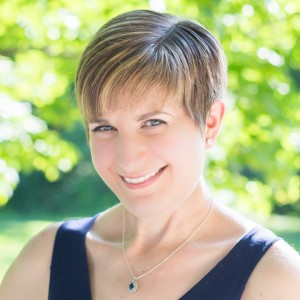I recently attended Hippocamp, a conference for creative nonfiction writers, in Lancaster, PA. It was my first time there, and I’m so grateful I went! The conference has only been running for two years, but it’s clear that it has a long future. It was super well-organized, with fantastic workshop leaders, panelists and speakers. (Mary Karr was the featured keynote!) The space and food were also excellent. Unfortunately, it took place on the same weekend as the Writer’s Digest Conference, so I had to miss out on that one this year, but it looks like the dates won’t overlap again, so even if you’re a WDC devotee, you can still come to Hippocamp next year!
5 Things I Learned at Hippocamp 2016
On the workshop side, I learned…
1) New Guidelines for Plotting My Novel
At the 3-hour “Self-Edit Like A Pro” workshop given by professional editor Allison Williams, I had that wonderful feeling of being in the right place at the right time. I’d just finished the first draft of my historical novel, and was doing the prep work to start draft 2. At this workshop, I felt like Williams handed me a whole bouquet of new options for prepping my book’s plot and structure. One of my biggest lightbulb moments was the distinction between the situation and the action. In historical fiction, the true-life events are the situation that the characters find themselves in, but the action is completely of my own creation.
A small but fun tip Allison mentioned was to use wordle.net to create a word cloud of your manuscript, so you can see which words you use most. The biggest ones should be evaluated on their importance, and you can do a search and replace to change or remove ones you use too often.
In the breakout sessions, I learned how to…
2) Write About the Same Topic Across Multiple Platforms
Workshop runner Lisa Romeo demonstrated how she was able to take her “root” subject (her father’s death), find a slice of the story that she hadn’t written about before, and give it an underlying theme that speaks to the overall human condition. She showed us how to “mine” our root material for new ideas and identify characters and story angles that we hadn’t previously used. It was easy to see how one could generate nearly a dozen personal essays or magazine articles using the same root source material.
3) Identify the Type of Creativity I am Best Suited For
Child actress-turned-writer Lisa Jakub (you may remember her from Mrs. Doubtfire or the original Independence Day) gave a workshop on how she finally figured out why acting wasn’t the right fit for her, even though she was extremely successful at it. Her message was an important one for me to hear, as I often get confused between the work that I can do, and the work I deep-down want to do.
From the panelists and speakers, I heard the message…
4) Tell the Truth. YOUR Truth
If you’re writing memoir or personal essay, don’t ask permission from people to tell the story. They didn’t ask your permission to do those things to you.
5) Diversity in Publishing is Our Responsibility
We can be better literary citizens through purchasing books by authors of different colors, sexes, origins and orientations; treating those books as mainstream instead of specialty “fringe” books; and demanding diversity in literary journals, workshops and small presses. Next time you pick up a literary magazine, look at the masthead. If you see a homogenous group, write a letter to the editor asking that they hire more diverse editors. Editors tend to gravitate toward writers who speak to their own experiences, so diversity in editing will lead to diversity of authors. The more voices we accept into the publishing world, the more we can all learn and grow from each other.
My favorite thing about this conference? Even though it was a creative nonfiction event, I felt like it covered all types of writing. The themes of the conference seemed to be “write better, work smarter, and focus your creativity,” lessons that could be applied to fiction, nonfiction and everything in between.
 Leanne Sowul writes the column “Be Well, Write Well” for DIY MFA. Her historical novel, Waist: A Tale of the Triangle Fire, is currently out on submission. In the meantime, she is working on her next historical novel and blogs about writing, reading, work/life balance and self-improvement at Words From The Sowul. Connect with her at leannesowul(at)gmail(dot)com, or on Twitter @sowulwords.
Leanne Sowul writes the column “Be Well, Write Well” for DIY MFA. Her historical novel, Waist: A Tale of the Triangle Fire, is currently out on submission. In the meantime, she is working on her next historical novel and blogs about writing, reading, work/life balance and self-improvement at Words From The Sowul. Connect with her at leannesowul(at)gmail(dot)com, or on Twitter @sowulwords.







